President Milanović Receives Gifted Students
21 March 2022 - On the occasion of International Day of Gifted Pupils, President Zoran Milanović on Monday met with representatives of the Rijeka-based Centre for Gifted Children.
This year the centre from Rijeka is organising "Gifted Awareness Week" during which it will hold workshops for children and youth, lectures for teachers, expert associates and parents, it was said during the meeting.
The centre's representatives mentioned the problems related to the system of education for gifted children in Croatia.
"Croatia does not have a system to identify gifted children in kindergartens and schools nor a comprehensive system to care for gifted children at the state level," the centre's president, Jasna Arrigoni said.
Parents spoke about experiences and problems they are faced with in the education system, adding that they hoped the new Education Act, which is currently being prepared, will clearly regulate working with gifted children.
The Centre is an association comprising teachers, school counsellors, psychologists, university professors, early childhood and preschool education student volunteers, teacher education and psychology student volunteers. It was established in 1997 to promote giftedness and raise awareness about gifted children who are exceptionally important for society's development.
Teachers' Association Asks Minister to Expedite COVID-19 Testing of Students
ZAGREB, 4 Nov 2021 - The teachers' Facebook group Staff Room on Thursday asked Education Minister Radovan Fuchs to expedite the testing of students and reduce waiting times for test results in order to contribute to curbing the spread of the coronavirus infection and reduce the need for online classes.
In an open letter to the minister, the group says that over the last few weeks the epidemiological situation in schools has been deteriorating even though the ministry, in cooperation with the Public Health Institute, has done a lot to prevent schools from turning into infection hotspots.
That the situation in schools has been deteriorating is evidenced by the fact that almost all schools in Croatia have switched to online classes after the autumn school break, the group said.
"Even though we are talking about only a few days, we believe this is only a short-term solution," they said.
The group notes that due to the increased pressure on the epidemiological service and the large number of people who are being tested, students in some cases are tested only five or six days after exhibiting symptoms.
Students have to wait for test results for up to two days, during which time all their close contacts in the classroom continue to attend physical classes while contacts outside the school are also at risk, the group says, warning that without self-isolation, the virus continues to spread.
This increases the likelihood of entire classes or even schools having to switch to distance learning, the group says, calling on the minister to do his best for the process of testing of students to be expedited and waiting time for results to be reduced.
For more, make sure to check out our dedicated lifestyle section.
Croatian Teachers Under Pressure: Angry Parents Behind Straight A Pupil Epidemic?
September 8, 2021 - The flood of straight-A pupils in Croatian elementary schools sadly isn't a sign of brilliance but of Croatian teachers being put under pressure by parents who want their kids to go to the best high schools in the country. The newly launched Facebook group wants to get to the bottom of fake A's, offering Croatian teachers a place for anonymous confessions.
Parents naturally want their best for their children and want to see them succeed and have the best life possible. The smarter the child, the better things will be for them, many would conclude. If a child is like that middle child from the show ''Malcolm in the Middle'', bright enough to be the master of everything you throw at him, be it maths, language, physics, or history, he should be able to sail through life worry-free, right? Well, maybe.
In reality, such gifted individuals, if actually real, are truly rare. However, you wouldn't think that if you were to see the grades of some Croatian pupils, with a large number of them getting straight A's. Unfortunately, this is a distorted picture of reality.
''I teach the youngest kids, and the criteria is owed to the parental pressure. I'm there just to hand out A's. Nothing else is good enough. I was even reported to the inspection because I gave one pupil a B (she was a C, but I knew there would be a problem so I gave her a B, and then chaos began). I justified giving her that grade for weeks with the threat of inspections hanging over my head. The grades are perfect, the knowledge not so much, the kid and their parents are happy, and the teachers crapped all over,'' reads a thread from one of the increasingly pressured Croatian teachers on the recently launched Facebook group ''Why Does it Itch When it's Not 5.0?'' (Zašto žulja kad nije 5.0?).
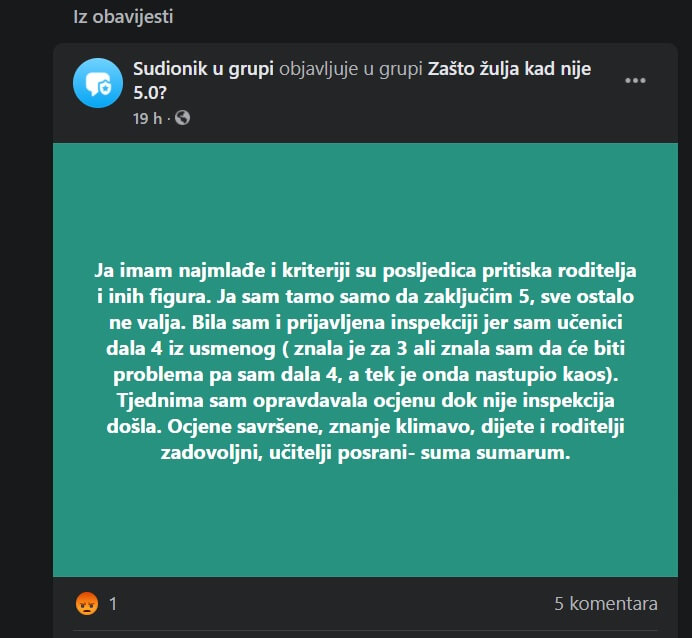
FB thread translated above, screenshot / Zašto žulja kad nije 5.0?
The flood of straight-A students (or, in Croatian terms, those kids with an average of 5.0, meaning they passed all subjects with a 5, Croatian for A), has been sporadically addressed in the Croatian media over the past few months as elementary school pupils were heading off to their high schools. So many straight A pupils have their results rated as unrealistic and the parental pressure placed on Croatian teachers and professors is seen as what's to blame.
A grades given as a gift and not as a true measure of a child's knowledge was something that was even addressed in the curriculum reform and is waiting to be fully implemented. With high school admissions coming to a close, the situation has since gone rather quiet.
But, then, famous Croatian investigative journalist Ivana Paradžiković published a Facebook thread expressing dissatisfaction that her ''4.8 son'' didn't managed to get accepted into high school in any of the six gymnasiums he applied for, as they were accepting only those kids with a grade of 5.0 in the new school year. She stated that her son was good enough for the European Film Academy but apparently not for the Croatian education system.
''He had the misfortune of going to a school where an A grade wasn't given away, and it was important to the professors that instead, they actually teach kids something. Over there, 4.4 is a B and not an A, and to me, that was always normal and acceptable (...) several classes with 30 pupils each with a straight A grade and nobody finds that unusual nor alarming... The education system is the foundation of the society,'' wrote the rightfully unhappy Paradžiković, as reported by Jutarnji List.
Paradžiković's thread, as well as the previous media coverage of the straight A epidemic across many Croatian schools, triggered freelance journalist Matina Tenžera to start a Facebook group which discusses the matter. The group consists of 249 members at the time of writing this article.
''I want to survey public opinion about this issue. Some say it's the fault of the system, but that's a bit too abstract. I want to find out how much parents really do push their children, is it truly such a big issue or maybe it's blown out of proportion?'' Tenžera said to TCN.
The group invites Croatian teachers to share their inside stories on parental pressure and generally what stands behind this unrealistic picture of the success of Croatian pupils on paper. The response so far is small, but Tenžera hopes that interest will grow. As TCN previously reported, Facebook groups that share anonymous confessions played a crucial role in revealing sexual harassment in the Croatian higher education system, mainly at the acting academy in Zagreb and other parts of the wider region.
Still, the small amount of threads gathered by Tenžera's group already reveals some true horror stories about how teachers in Croatia are perceived more as slaves than as valued individuals tasked with properly preparing the next generation for adulthood out there in the big wide world.
''My mother works as a teacher, and the situation in which someone came to school to attack and threaten to sue her because she gave a low grade to the child of someone famous has happened more than once. She literally had to remove the grade under the threat of getting fired,'' reads one anonymous confession.
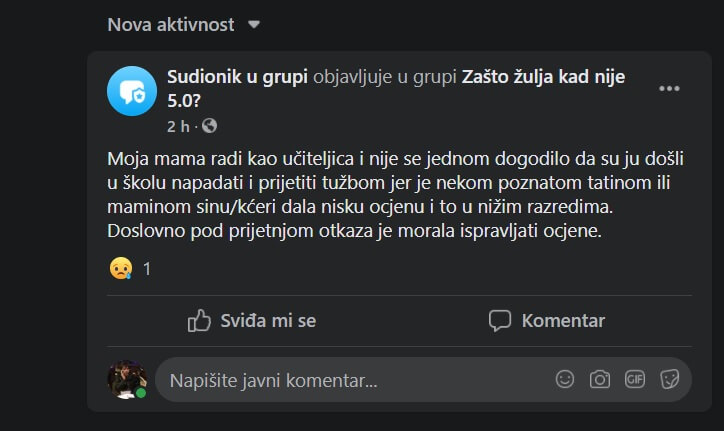
FB thread translated above, screenshot / Zašto žulja kad nije 5.0?
Tenžera wants to learn just why Croatian schools and their headmasters don't take a stand and explain to parents that a good grade needs to be worked for and earned.
''I'm just a layman, but I hope that experts and experienced teachers will join the group and provide some of their solutions,'' says Tenžera.
Zagreb's Vladimir Prelog Science School and Mathematical Gymnasium (MIOC) has already taken to the practice of having entrance exams to settle the difference between talented pupils on paper and actual talented pupils.
Introducing and valuing entrance exams more than elementary school grades is one solution Tenžera believes could work, but as she points out, she isn't an expert. So, she hopes the Facebook group will encourage discussion for those who are educated, trained, and qualified to discuss education issues.
The following days will reveal whether or not this Facebook group grow into a bigger voice protesting against unfair and unethical practices in the Croatian education system and the abuse of Croatian teachers.
Meanwhile, in the first week of the new school year in Croatia, pupils are back in their classrooms learning about the world around them. However, the lesson of honesty and getting only what you work hard for is a lesson only their families can teach. Not threatening teachers for giving grades that are a realistic, professional evaluation of knowledge is lesson number one.
Read about Croatian politics and history since 1990 on our TC guide.
For more about education in Croatia, follow TCN's dedicated page.
Summer Business School: A Chance for Entrepreneurs at Step-Ri Science-Technology Park
May 27, 2021 - This June, a five-day Summer Business School organized by Step-Ri Science-Technology Park and the American Embassy in Croatia makes Rijeka the place for entrepreneurs.
Science parks, research parks or technology parks or less intriguingly known as innovation centers, are a purpose-built cluster of office spaces, labs, workrooms, and meeting areas designed to support research and development in science and tech, says Bidwells, one of the UK's most reputable property consultancy companies. Common infrastructures worldwide and in Europe, the biggest city in Kvarner, Rijeka, is no exception in having one.
Step-Ri is a science-technology park, part of the University in Rijeka, and a place where science and economy meet to encourage entrepreneurship based on knowledge and new technologies.
„As one of the leading institutions in Croatia when it comes to entrepreneurship, Step Ri brings the newest knowledge in innovation and management from around the world through interesting education and business consulting. With our knowledge and experience, singlehandedly and with the help of the international network of partners and friends, we create projects and specialized programs to encourage entrepreneurship initiatives for both employed and unemployed, students, and the scientific community. With new services, business models, personal and organizational competencies, we make already successful entrepreneurs more competitive“, says Step-Ri's official website.
One example of such initiatives is the upcoming Summer Business Camp which will take place from June 23-27. And what's more interesting, this five-day program is brought to Step-Ri in collaboration with the American Embassy in Croatia.
„Summer Business Camp brings teams from all Croatia that want to improve or refine their business ideas and solutions through exercises, lectures, and individual coaching, “says Step Ri, promising extraordinary mentoring from successful entrepreneurs and investors.
This year, special attention will be given to the gaming startups, but other industries are also welcome. Regardless of whether you are already an entrepreneur or just aspiring to be one, you are welcome to apply if you have a developed business idea or a functional prototype.
Learning how to bulletproof your idea, experienced entrepreneur as a mentor, a chance to hear directly from investors what are they looking for and how to deliver it, valuable feedback and honest thoughts to accelerate your project, creating new opportunities, meeting other people in the business, and a having a good time- are some of the promises by Step-Ri for those who apply.
But, it would be best if you hurried, as June 6 is very close, and that's the deadline to beat. At least ten teams will be selected after a committee of experts evaluates project applications. Bed and breakfast accommodation for up to two team members, lunch at the venue, local bus tickets for getting to the venue, and a commemorative T-shirt await for those who are selected. And once in, a panel of venture capitalists, business angels, and business people will award the best with Apple iPad Pro (1st prize), Apple iPad Air 4 (2nd prize), and Apple iPad 8 (3rd prize).
Pieces of technologies such as the aforementioned above can certainly come in handy to entrepreneurs, but what about money? The actual finance for your projects?
„Many teams in the past received funding from participating investors and judges. However, nobody but you can answer that! Come and pitch your idea and see how far it will take you!“concludes Step-Ri regarding finance possibilities to turn your vision into a reality.
Learn more about Rijeka on our TC page.
For more about education in Croatia, follow TCN's dedicated page.
E-Matematika: New Online Instruction Developing Business That Helps Pupils
May 21, 2021 - With math seeing more and more appreciation, it's still, quite rightfully, a challenging discipline that not everyone can comprehend. Quality lessons, additional instructions, and motivated lecturers and teachers are the obvious recipe to both help those who struggle with math and those who are good at it to achieve their best possible potential.
However, the coronavirus pandemic is still present and is still causing difficulties in the Croatian education system, forcing pupils and professors to switch from online to live lectures or a mix of the two, putting additional pressure on sharing knowledge on any imaginable subject. With math being a discipline that requires lots of practice and explanations, it's perhaps the subject which has suffered the most.
Still, as Srednja.hr reports, a great potential solution to this issue appeared back in October 2020 when Robert Pavlik started E-Matematika, a website, for online math instructions.
''The site is focused on all students that need help with math, whether it's about fixing a bad grade or preparing for an exam“, writes Srednja.hr.
E-Matematika currently offers 45 minutes of lessons, offering solved mathematical tasks with the procedure detailed, as well as a video explanation.
These instructions are paid for simply through the ''order instructions''check-out process, and it's all quite automated. However, phone and videocalls for arranging instructions are an option for the safety of kids so that parents can see with whom they'll be communicating. Reliable platforms for communication such as Zoom, Google Meet, and MS Teams are also used, and two conditions need to be satisfied for the instructions to work: easy platform access for the student and an uninterrupted video connection. Each instruction ends with the service sending a questionnaire to the students to see how happy they are with the whole experience, as well as a receipt. The questionnaire builds the personal rating of the instructor.
There are four levels of instructions: lower elementary classes, higher elementary classes, high schools, and faculties, which offer more effective services as some instructors prefer to work with teens, and others are specialised working with younger kids. The site so far boasts 100 instructors, and in addition to maths, Croatian pupils can also find instructions from the subjects of physics and chemistry. Srednja.hr adds that students from field-related faculties recognised the work of E-Matematika and want to participate.
The site welcomes anyone interested to apply to become the next instructor, as long as they satisfy the following conditions: two years of instructing experience as a minimum, excellent communication skills, reliability, flexibility in organising instructions, along with patience and the ability to focus on a student.
It's also worth mentioning that the first concept of online instructions in Croatia (again, for math, but also for statistics) appeared in 2011, when a mathematics professor at the Faculty of Science (PMF), University of Zagreb, Toni Milun, started posting videos explaining the curriculum online and for free. And you guessed it; it was a huge hit.
Despite Milun offering additional mathematics lessons for free, E-Matematika having more than 500 registered users and 2000 orders, it seems it can justify the paid offer with its value and use.
However, it will be interesting to see will this trend continue when the pandemic is over and the face-to-face instructions return as normal. Currently, the Croatian media landscape is seeing more and more pupils and parents stepping out and saying that nothing can replace face-to-face classes.
Learn more about Croatian inventions & discoveries: from Tesla to Rimac on our TC page.
For more about science in Croatia, follow TCN's dedicated page.
Students From Split Design Mobile Device For Removing Microplastics From Sea
April 11, 2021 - Four students from Split have designed a device for cleaning microplastics from the sea, which unlike other such devices is remote-controlled and can move around.
Antonija Buzov, Petra Kundid, Matej Radić and Andro Rudan have designed a system that can filter seawater and remove microplastics from it, and can be guided by remote control, which makes it better than other similar purifiers.
"The problem with microplastics is that it adsorbs heavy metals, so when you swallow microplastic particles from the sea, you are actually ingesting heavy metals, which could eventually lead to various cancers, bleeding and other diseases," said Petra Kundid, who is working on a doctorate in parasitology.
As microplastics are found on the surface and the very bottom of the sea, they originally envisioned a roller with holes, with the properties of a sponge, but as they did further research, they designed a semi-submerged box that filters and cleans the sea water that passes through it. They called the product "CBRO".
"We used cheap materials because this kind of product normally requires a lot of money, which is, I believe, why individuals do not dare to 'tackle' this problem," Andro Rudan while explaining their prototype.
"The propeller was printed on a 3D printer, the engine is from a drill and is powered by three batteries from laptops that are no longer used. The electronics and the device are connected to the Internet. We control the rudder and the engine speed via mobile phone," he said, adding that they intend to install sensors which would measure the amount of water that passes through the device in order to obtain numerical data which would later be easier to use in studies.
Plastic makes up 85% of waste on beaches around the world, and last year the International Union for Conservation of Nature (IUCN) said that over 200,000 tonnes of plastic leaks into the Mediterranean every year, with a sharp warning that by 2040 the amount will double unless significant measures are taken.
At a plenary session in late March, the European Parliament, in its resolution on marine litter, underscored the damage it caused to fisheries and called for urgent measures to reduce such waste, from further restricting the use of disposable plastics to promoting collection and recycling. The resolution also called for a stronger inclusion of the maritime aspect into the European Green Deal.
For more, follow Made in Croatia.
Instead of Waiting for a Job, Split Students Started Their Own Van Transport Business
January 27, 2021 – What is it like to be a student in Croatia at the beginning of 2021? Classes and exams are mostly online, there is no place to drink coffee or go out, and there are almost no student employment opportunities. Still, two Split students do not despair. Instead of waiting for a job to fall from the sky, they used this coronavirus crisis as an opportunity to realize a long-planned wish – to start their own van transport business.
Waitering, working the cash register, selling food and drinks, and stacking goods are just some of the most common student jobs that have, unfortunately, suffered a massive blow in the past year.
Due to the crisis caused by the coronavirus pandemic, many jobs are at risk, and students who are one of the most affected groups on the labor market are rarely mentioned. Working while studying is always challenging. For some students, such work is the only source of income, while for many of them, student work provides additional pocket money.
'We sent countless job applications, but without answers'
When the amount of work of many businesses reduced, especially in tourism and hospitality, students were the first to be hit by the dismissal. Thus, according to data from the Student Center in Zagreb, there were almost half as many employed students from March to September 2020 as in the previous 2019. Students hoped for a better situation in the fall and during the Christmas fairs last year, but due to cafe and restaurants' re-closure in early December, they were again left without earnings.
The situation is not better in Split either. Aware and disappointed with the whole situation, Split students Mario Veljača and Toni Šegović decided to start their own van transport business after many unanswered job applications. Since they could not find a student job, they created it. The lack of employment opportunities was a big blow to them because they financed themselves during all the years of their studies, and they also loved their work routine while studying.

Mario Veljača / Private archive
"As one tries to save on everything in these times of crisis, including the workforce, it is almost impossible to find a job. As students graduating, we have a lot of free time, and we could work full time. We sent countless job applications, but without success, more precisely, without answers," says Mario, a business economics and management student at the Faculty of Economics in Split.
He and his friend Toni, a graduate student of nautical studies at the Faculty of Maritime Studies in Split, fear that they will end up on the job market after graduating this year.
Despite their extensive work experience in the tourism sector, they could not find a job. As time went on, the savings dried up, and state aid for students was lacking. Mario and Toni did not want to sit at home and wait for the situation to pass but took matters into their own hands to not have to depend on their parents, who were also not bypassed by the crisis.
The key is in social media marketing
With almost no start-up capital, they were thinking about possible options, so they came up with the idea of van transport. Their only mitigating circumstance was that, due to a lack of his own business, Mario's girlfriend's father could lend them a van to use.
"We offered him cooperation where we would run all the business and slightly repurpose the original activity of his company. As his company was registered for the transport of goods and passengers, the idea could come to life. He agreed and gave us the green light. We agreed on all the conditions, withdraw the student contracts, and we were ready to start the business," says Mario.

Van transport seems to be a good market niche for two Split students / Source: Pexels
The young duo from Split have been friends for over 15 years and have always planned to start a joint business. They have had some plans before, but they were disrupted by an unpredictable situation that shocked the whole world.
For furniture moving and transport services with their van, they are available in Split-Dalmatia County every day, at any time.
With a well-designed promotional campaign on social networks, they managed to reach their first clients very quickly. As they say, there is always a need for relocation and removal services for old furniture and similar bulky waste, so they have found their place on the market.
Low prices and high effort
"Our work is much more than just taking out and bringing in furniture and driving a van. We spend an entire 8-hour workday devising ideas, creating ads and planning. As we create graphics, pictures, hand out flyers, or do all the marketing, time really flies by," says Mario.
During their average workday, they don't go home until they do everything they can. They want to leave a good impression, be as fast, efficient, and careful as possible, but also more affordable because offering lower prices for their services makes them acceptable. They're aware that many people are currently in a difficult financial situation, so they started their business by offering lower prices for their services.
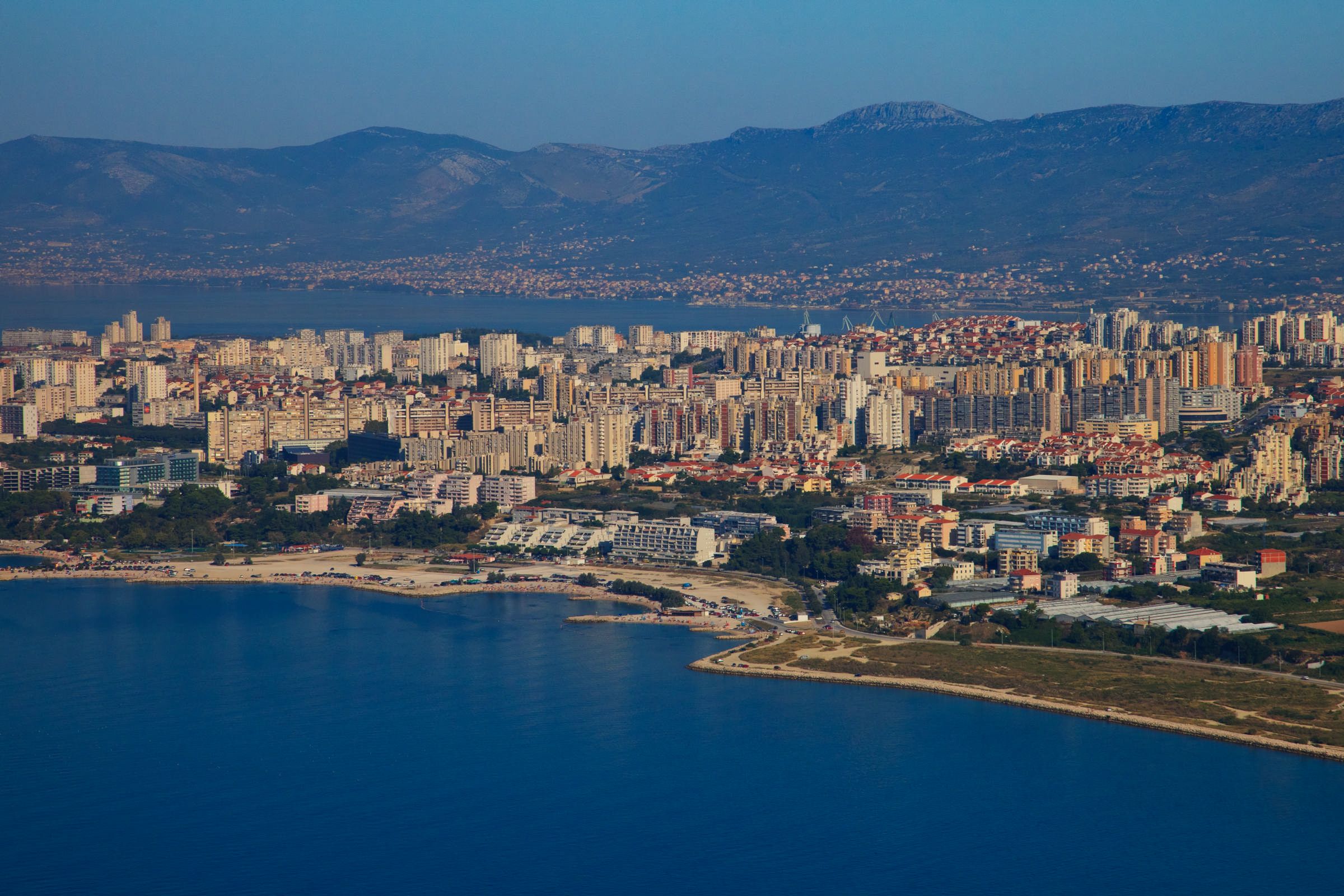
Their services are available in the Split-Dalmatia County / Copyright Romulić and Stojčić
This has proved successful for them so far. They earn enough for their needs and hope to be successful enough overtime to hire other students struggling with similar difficulties in finding jobs.
"After the physical work is done, we continue coordinating business for the next period, giving ideas and suggestions for new campaigns and designing a concept based on the mistakes we make," says Mario.
'You have to create opportunities for yourself'
On social networks, where they advertised from the very beginning, they received many supportive messages for their initiative. Their biggest reward, they say, is when clients promise to call them again and recommend them to a friend, neighbor, or godfather. And they are happy when they are greeted by kind and hospitable hosts and treated with some local delicacies.
Slowly but surely, they notice a positive business trend. People call them from Zagreb and even from abroad. Their next step is long-distance transport, outside Split-Dalmatia County, and in the future, they would like to try to organize transport outside the borders of Croatia.
"People are glad to see that young people are active and recognize that we fight to make it easier for our family, instead of sitting on a sofa and waiting for a job to fall from the sky. You can't cross your arms and expect opportunities. You have to create it yourself. Citizens appreciate that we are especially friendly to retirees for whom we have reduced transportation prices. We hope that you will hear more about us in the future if we succeed in other projects that we planned before the whole mess with the coronavirus," says Mario.
These two friends are a great example of how, with knowledge, resourcefulness, dedication, and hard work, it is possible to take control of your misfortunes and earn a few kunas in this unpredictable time.
For the latest travel info, bookmark our main travel info article, which is updated daily.
Read the Croatian Travel Update in your language - now available in 24 languages.
All Full-Time Osijek and Baranja Students Get Free Train Travel
January 9, 2021 – From this year, full-time Osijek and Baranja students can get free train travel any time throughout their own county and for travel to educational centres anywhere in Croatia, in a new deal struck by the county and the national train operator
Once a sea bed, the vast flatlands of Slavonia are perfect for farming. At one time, this area was the breadbasket for much of Yugoslavia. It really wasn't so long ago that many folks left dry and dusty Dalmatia in search of employment and new lives on this fertile ground. Now, it's the other way round - Slavonian youth travel to the coast each summer in search of seasonal work. Others move to Ireland, Germany, Austria. Slavonia is losing many skilled younger people at an alarming rate. Increased mechanisation has reduced the need for labour in the area's agriculture. And, besides, most Slavonian youths are these days educated to a degree where their ambitions are greater than joining local agricultural endeavours.
In an area with limited possibilities, limited opportunities, education lies at the heart of survival in Slavonia. Local authorities know this and try to facilitate education as best they can. It is to that end that those in the Slavonian county of Osijek and Baranja have struck a deal with Croatia's national train operator to offer free train travel to all full-time Osijek and Baranja students.
Agreed upon at the end of last year, the scheme was implemented on 1 January 2021. Osijek and Baranja County has agreed to co-finance journeys for full-time Osijek and Baranja students who study not only within the county itself but across the whole of Croatia.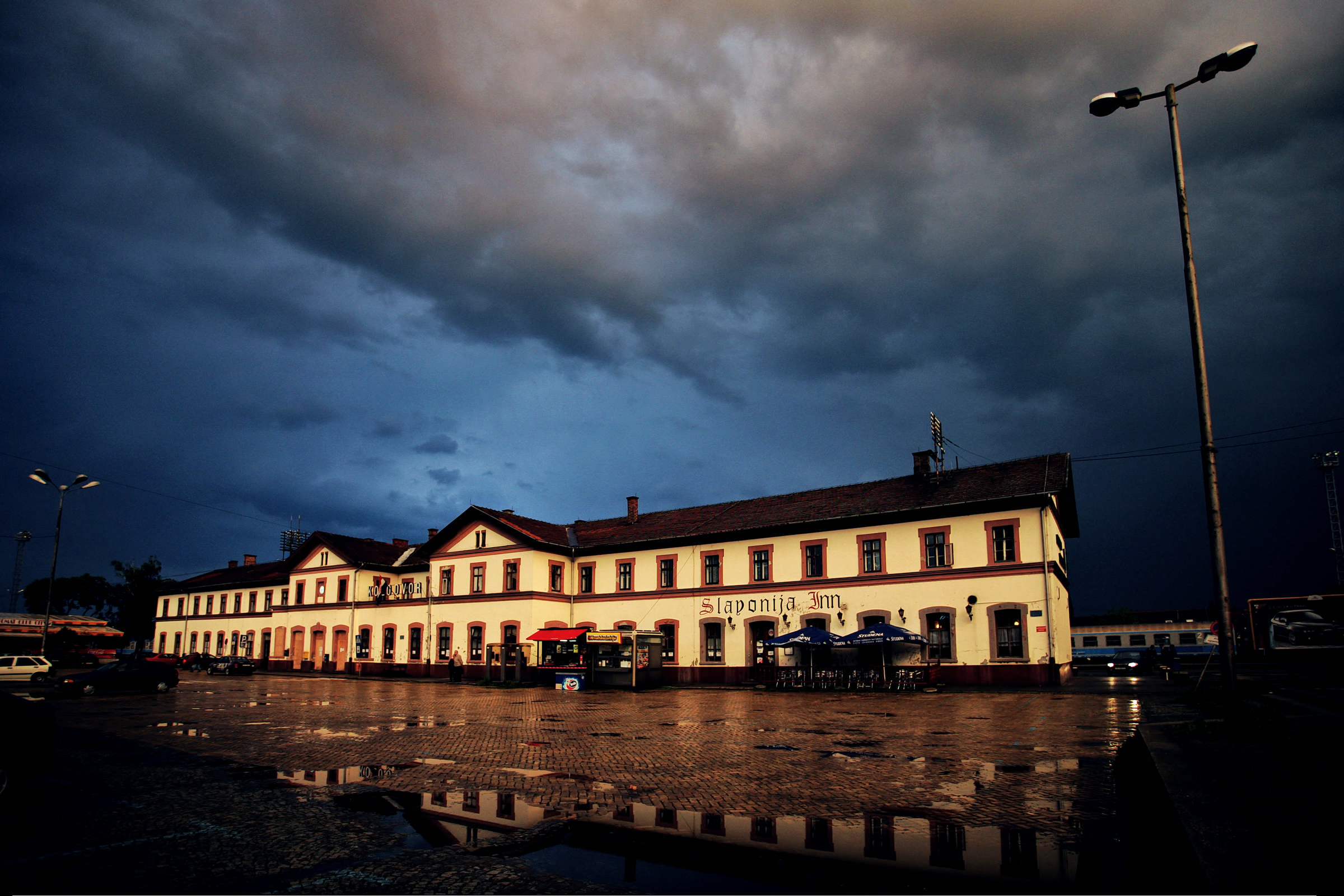 Osijek train station © Romulić & Stojčić
Osijek train station © Romulić & Stojčić
Monthly tickets for travel within the county already held a discount of up to 65 percent given to full-time students by the train operator, depending on the route. The County has now agreed to pay the remainder of the monthly ticket for all full-time Osijek and Baranja students. To meet the requirements of this deal, the departing and destination stations must both be in Osijek-Baranja County. The free monthly ticket allows an unlimited number of trips on the route, meaning that Osijek and Baranja students can also use the train for free on recreational journeys within the county.
The second deal sees the County co-finance 50% of journey costs for full-time Osijek and Baranja students who study elsewhere in Croatia, with the train operator HŽ agreeing to grant a discount to cover the other 50 %.
In order to obtain a free (monthly or individual) ticket, it is necessary to first obtain a certificate from their Administrative Department for the Economy. To get the certificate, Osijek and Baranja students must submit a copy of their identity card, a certificate of full-time study and two completed application forms (these can be found on the county's website www.obz.hr). Requests can be made in person or by mail (Osijek-Baranja County, Administrative Department for Economy, Županijska 4, Osijek or on the e-mail: This email address is being protected from spambots. You need JavaScript enabled to view it.
Free tickets can thereafter be bought by Osijek and Baranja students at the box office, prior to travel, or on the train itself, upon producing the relevant and needed documentation.
Faculty of Economics University of Zagreb Celebrates 100 Years
ZAGREB December 5, 2020 – With over 9000 students currently enrolled, the Faculty of Economics University of Zagreb is the largest faculty in Croatia. In 2020, this internationally renowned institution celebrates its 100th birthday, so TCN decided to take a closer look.
Every other student you meet in Croatia seems to study economy. It makes you wonder where they all go to after their studies are complete. Are there really so many positions for economists in Croatia?
In 2020, the Faculty of Economics University of Zagreb celebrates its 100th birthday. The long list of its famous former students gives a clue to where all the Croatian economists go – the tourism sector, diplomacy and international relations, business, politics and government.
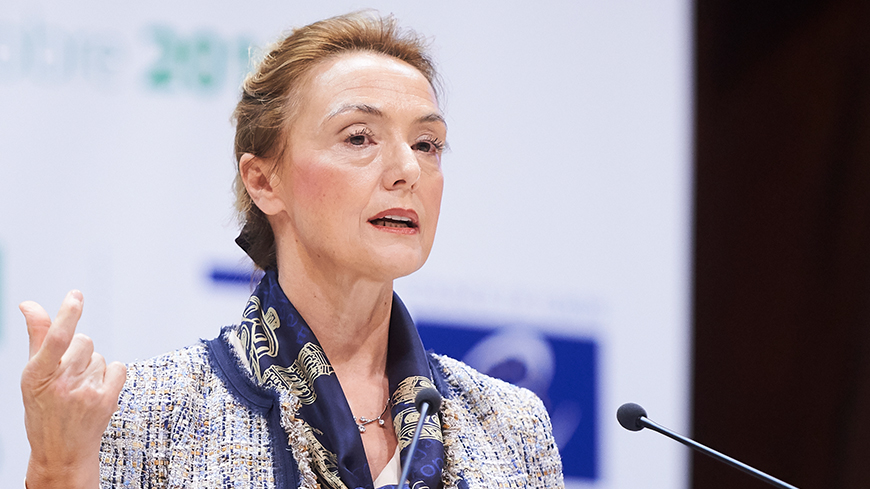 Marija Pejčinović Burić, a graduate of the Faculty of Economics of the University of Zagreb and the current Secretary General of the Council of Europe. After graduating, like Savka Dabčević-Kučar, she became o doctor of economics and before taking her current position served as Croatia's Deputy Prime Minister and Minister of Foreign and European Affairs © Council of Europe
Marija Pejčinović Burić, a graduate of the Faculty of Economics of the University of Zagreb and the current Secretary General of the Council of Europe. After graduating, like Savka Dabčević-Kučar, she became o doctor of economics and before taking her current position served as Croatia's Deputy Prime Minister and Minister of Foreign and European Affairs © Council of Europe
Graduates of the Faculty of Economics University of Zagreb have served as mayors of Zagreb and Split, Deputy Prime Minister of Croatia, Minister of Finance, Minister of the Economy, Secretary-General of the Council of Europe, Governers of the Croatian National Bank, Vice-President of the UN World Food Council, President of the Croatian Football Association, Minister of Environmental and Nature Protection, special advisors to the President of Croatia and countless university professors, including several former rectors of the University of Zagreb. Within its graduate professors, it has produced no less than 19 full members of the prestigious Croatian Academy of Sciences and Arts, more than any other single institution in the country.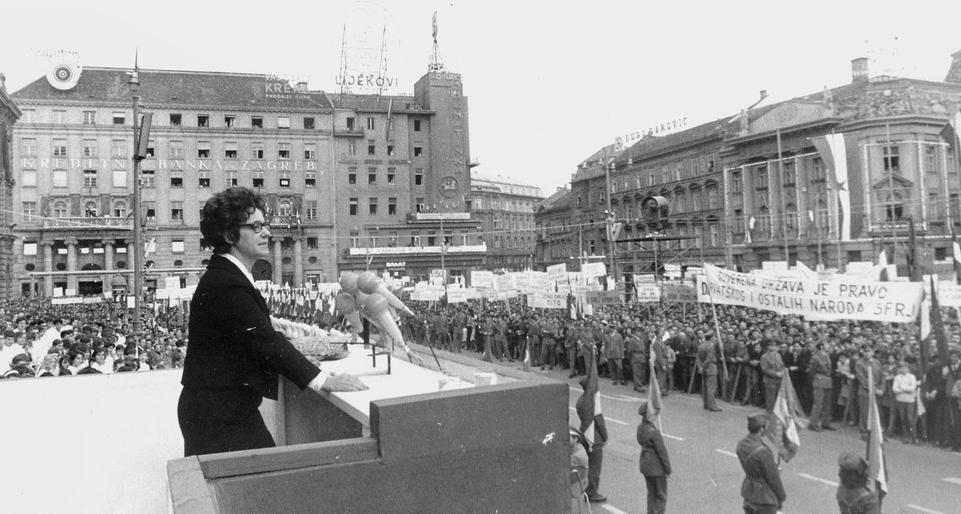 Savka Dabčević-Kučar, a graduate of the Faculty of Economics of the University of Zagreb. Born on Korčula, she became an anti-fascist in World War II, joining the partisans after her brother was beaten by fascists. After graduating, she continued to study at the faculty and became one of the first doctors of economics in Croatia, raising eyebrows by choosing to write her doctorate dissertation about a non-Marxist economic theorist (Englishman John Maynard Keynes). She became a professor at the faculty in the 1950s and despite her great advances in political life, remained a committed teacher at the faculty until 1971. In 1967, she was elected President of the Socialist Republic of Croatia. In 1969, she moved to an even more important position - that of president of the Central Committee of the League of Communists of Croatia. She was the first woman in Europe to be appointed head of government of a political entity and the first female in Croatia to hold an office equivalent to a head of government. In this picture, she addressed supporters on Ban Jelacic Square Zagreb during the movement called the Croatian Spring, which called for greater autonomy for Croatia. At the address, thousands cheered her as “Savka, queen of the Croats”. For her pivotal role in the movement, she was removed from her positions and public life and retired. She returned to politics in 1990 upon the collapse of communism in Europe and during the Croatian war of independence was one of the few politicians who visited the front lines of battle in Slavonia, Petrinja, Pokupski and the Dalmatian hinterland
Savka Dabčević-Kučar, a graduate of the Faculty of Economics of the University of Zagreb. Born on Korčula, she became an anti-fascist in World War II, joining the partisans after her brother was beaten by fascists. After graduating, she continued to study at the faculty and became one of the first doctors of economics in Croatia, raising eyebrows by choosing to write her doctorate dissertation about a non-Marxist economic theorist (Englishman John Maynard Keynes). She became a professor at the faculty in the 1950s and despite her great advances in political life, remained a committed teacher at the faculty until 1971. In 1967, she was elected President of the Socialist Republic of Croatia. In 1969, she moved to an even more important position - that of president of the Central Committee of the League of Communists of Croatia. She was the first woman in Europe to be appointed head of government of a political entity and the first female in Croatia to hold an office equivalent to a head of government. In this picture, she addressed supporters on Ban Jelacic Square Zagreb during the movement called the Croatian Spring, which called for greater autonomy for Croatia. At the address, thousands cheered her as “Savka, queen of the Croats”. For her pivotal role in the movement, she was removed from her positions and public life and retired. She returned to politics in 1990 upon the collapse of communism in Europe and during the Croatian war of independence was one of the few politicians who visited the front lines of battle in Slavonia, Petrinja, Pokupski and the Dalmatian hinterland
The Faculty of Economics University of Zagreb is the largest faculty in the country. Over its 100 year history, it has established itself as an internationally respected institution. Today, it has around 9000 persons enrolled, caters for international students with some courses in English and has produced over 86, 000 graduates, including 856 doctors of science.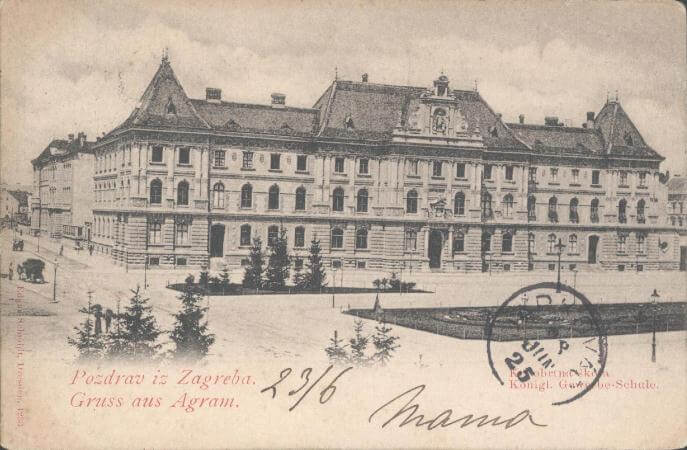 In its infancy, students of the College of Trade and Transport were taught at the Technical College, which is today the Museum of Arts and Crafts in Zagreb © National and University Library in Zagreb
In its infancy, students of the College of Trade and Transport were taught at the Technical College, which is today the Museum of Arts and Crafts in Zagreb © National and University Library in Zagreb
The history of the Faculty of Economics University of Zagreb starts with the opening in 1920 of its forerunner, the Zagreb College of Trade and Transport. Its purpose was to educate in the areas of banking, domestic and international trade, transport, consular services, insurance and the education of teachers. Its courses lasted three years and it proved so popular that in the academic year 1923/24, some 1,125 students were enrolled.
The institution held college status until 1925 when Stjepan Radić became the Minister of Education. It must have been unusual for Radić to find himself as part of the government of the Kingdom of Serbs, Croats and Slovenes, the state which preceded the Kingdom of Yugoslavia. Today, Radić is best remembered as a politician outspoken in his advocacy of autonomy for Croatia. Before his appointment to the government, he had always done so in opposition. Indeed, he had been imprisoned several times for his views, which were proclaimed loudly in his writings or in person (he was a gifted public speaker). As recently as March 1925 he had been in prison but, when the political party of which he was a member officially recognised the monarchy and the state constitution, he was freed. In a remarkable turnaround, before the year's end, he was a minister in the government.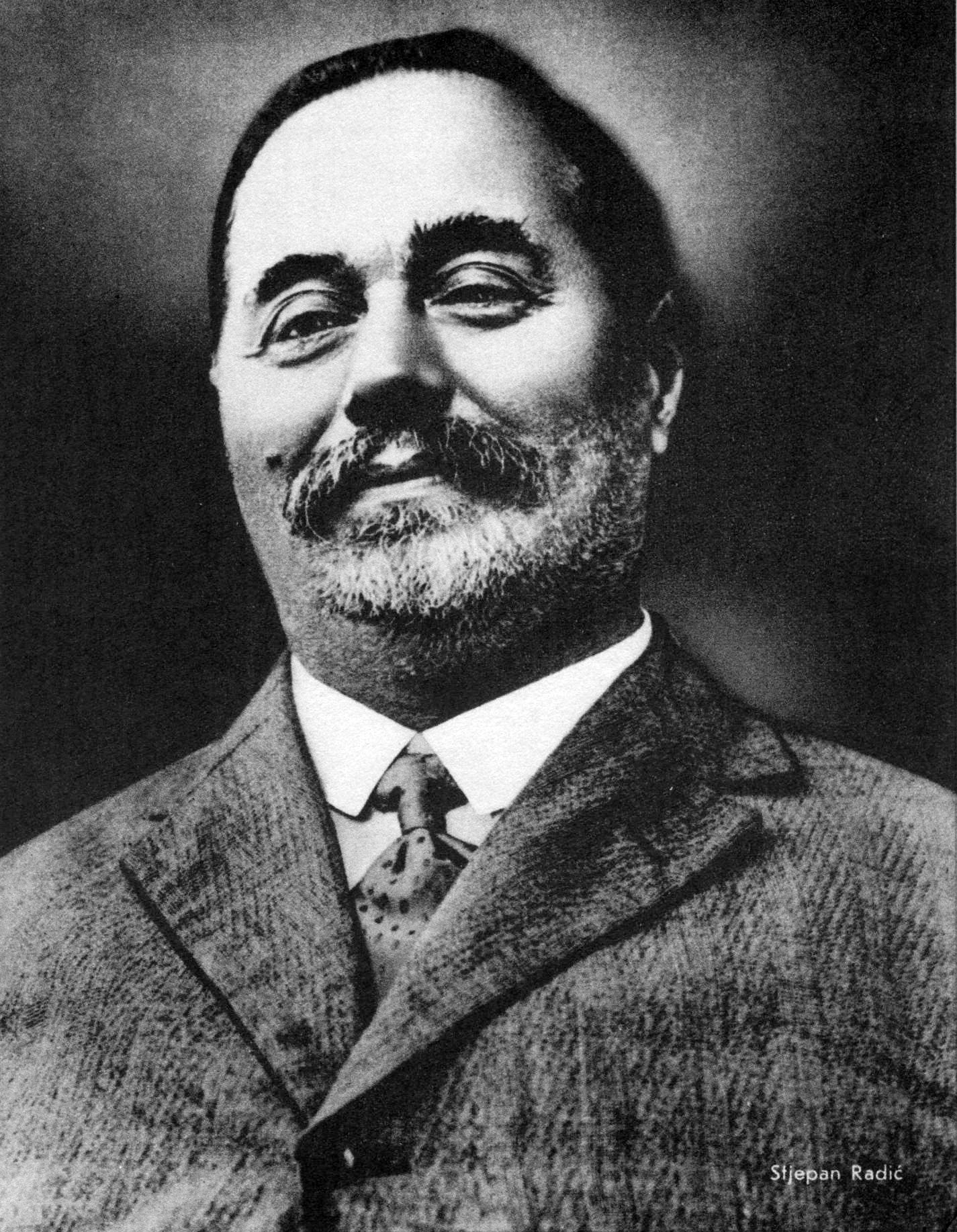 Stjepan Radić, pictured in the 1920s © public domain. In 1895 Radić was sent to prison for the public burning of the Hungarian flag in Zagreb – alongside Antun Dabčević, the father of Savka Dabčević-Kučar.
Stjepan Radić, pictured in the 1920s © public domain. In 1895 Radić was sent to prison for the public burning of the Hungarian flag in Zagreb – alongside Antun Dabčević, the father of Savka Dabčević-Kučar.
Stjepan Radić's desire for Croatian autonomy was not born from the ideals of the political class of Zagreb. The ninth of eleven children, born to a peasant family in a small village on the banks of the Sava river, just north of Sisak, Radić was very much a representative of the people whence he came. To him (and others in his family – his brother and nephew also being prominent politicians), education had the most important role to play in emancipation. He had lived in poverty in order to complete his own - after being banned from university-level educational institutions throughout the whole of the Austro-Hungarian empire for his protests against the state, he travelled penniless to Russia, France and Switzerland to complete his studies. In the latter, finance was one of his chosen subjects.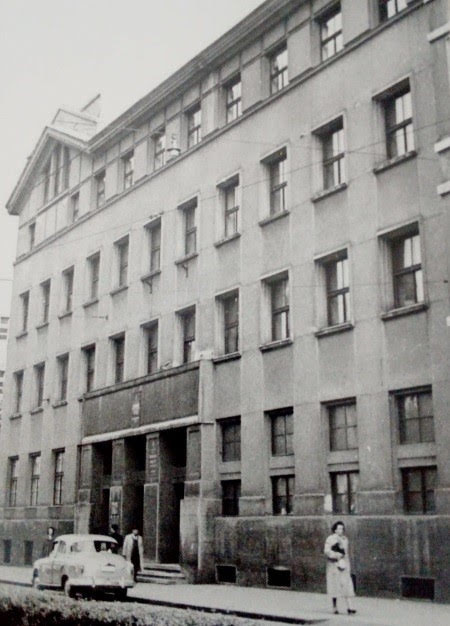 The first dedicated building of the Higher School of Economics and Commerce was located on the corner of Bauerova and Zvonirmirova © Faculty of Economics University of Zagreb
The first dedicated building of the Higher School of Economics and Commerce was located on the corner of Bauerova and Zvonirmirova © Faculty of Economics University of Zagreb
Under Radić's spell in office, the Zagreb College of Trade and Transport became the Higher School of Economics and Commerce. Its courses extended to four years, it attained university status. With no building designated to the increasingly popular institution, students had sometimes been taught at the Technical College (today's Museum of Arts and Crafts) and in parts of what is now the Mimara Museum. A dedicated home for the faculty was authorised and its construction started in 1927. Classes began at the faculty, located on the corner of Bauerova and Zvonimirova, in 1928, but within the decade the institution had outgrown its home and a plot of land in Svetice was acquired in order to build a new, larger facility. Its construction was interrupted by the Second World War and students would end up being taught on the Bauerova and Zvonimirova site all the way up to 1952.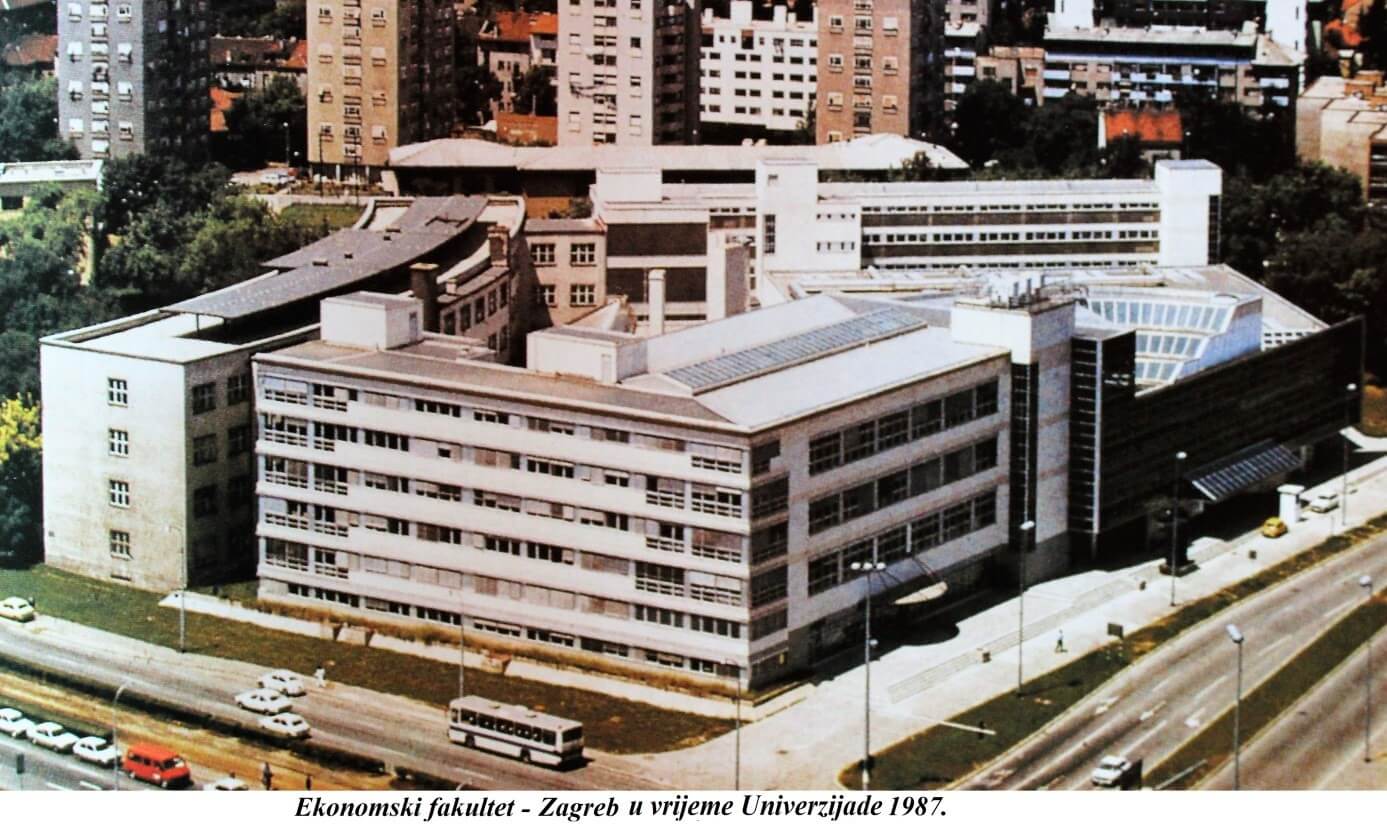 The faculty's modern building, pictured in 1987. Today, the faculty has 17 departments - Finance, Demography, Economic Theory, Business Economics, Informatics, Macroeconomics and Economic Development, Marketing, Mathematics, International Economics, Business in Foreign Languages, Organization and Management, Law, Accounting, Statistics, Trade and International Business, Tourism, Physical Education and Health © Faculty of Economics University of Zagreb
The faculty's modern building, pictured in 1987. Today, the faculty has 17 departments - Finance, Demography, Economic Theory, Business Economics, Informatics, Macroeconomics and Economic Development, Marketing, Mathematics, International Economics, Business in Foreign Languages, Organization and Management, Law, Accounting, Statistics, Trade and International Business, Tourism, Physical Education and Health © Faculty of Economics University of Zagreb
In 1947, the Higher School of Economics and Commerce became the Faculty of Economics University of Zagreb. In 1952, the faculty officially moved to the new site in Svetice. In 1968 it expanded once more when it merged with the 12-year-old College of Economics. Since then, the building at Svetice has received major upgrades and further facilities of the faculty can now also be found at the university campus in Borongaj, in Varaždin, in Koprivnica and in Bjelovar. After a century of existence, the Faculty of Economics University of Zagreb's longstanding difficulties to meet the popularity of its courses with the space available are now over. Not only can they accommodate every Croatian economy student who makes the grade, but they are also able to offer places to some of the best international students. It would surely come as no surprise if they are still educating the future elites of business, banking, finance and politics in another 100 years.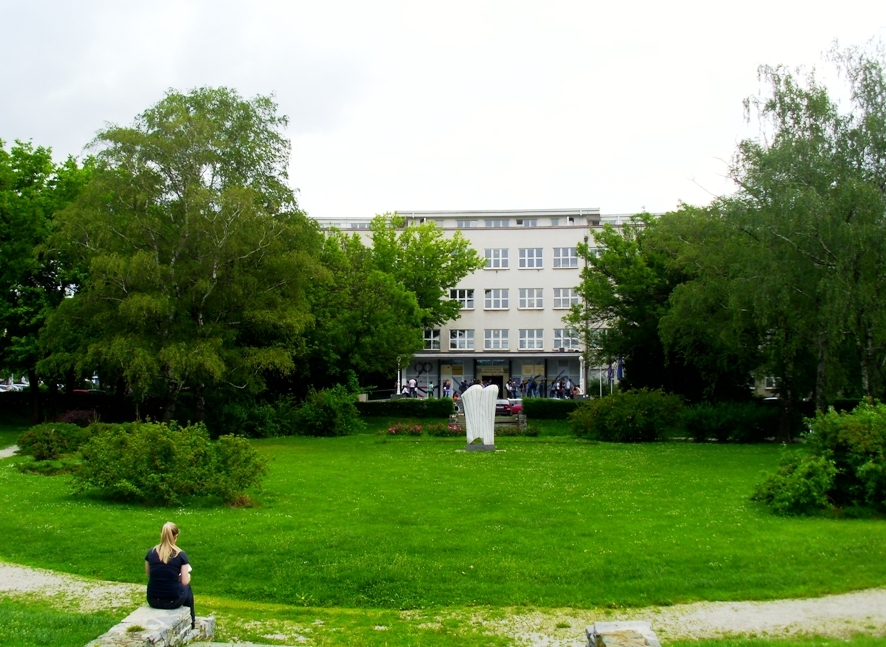
The Faculty of Economics University of Zagreb site in Svetice, as seen from its garden © Wolf - Pidgeon
Croatian Dejan Nemcic The Best Geography Teacher In The World
ZAGREB October 23, 2020 – Croatian professor Dejan Nemcic is the best geography teacher in the world. He was awarded the status in the annual Global Teacher Awards for the vivid and imaginative way he engages students
Croatia has the best geography teacher in the world. Dejan Nemcic from Ivo Andrić Elementary School in Sopot, Zagreb was on Thursday 22 October named as the winner in his class by the annual Global Teacher Awards. He is one of the few winners this year from this part of Europe.
After he was named a recipient of the award, Dejan Nemcic was interviewed by Croatian media outlet 24sata. In the interview, he dedicated the award to his students.
Dejan Nemcic, who is originally from Garešnica in the south of Bjelovar-Bilogora County, was nominated because of the vivid and imaginative way he engages students in geography. Using online communications and multi-media he places students directly within the environments they're learning about.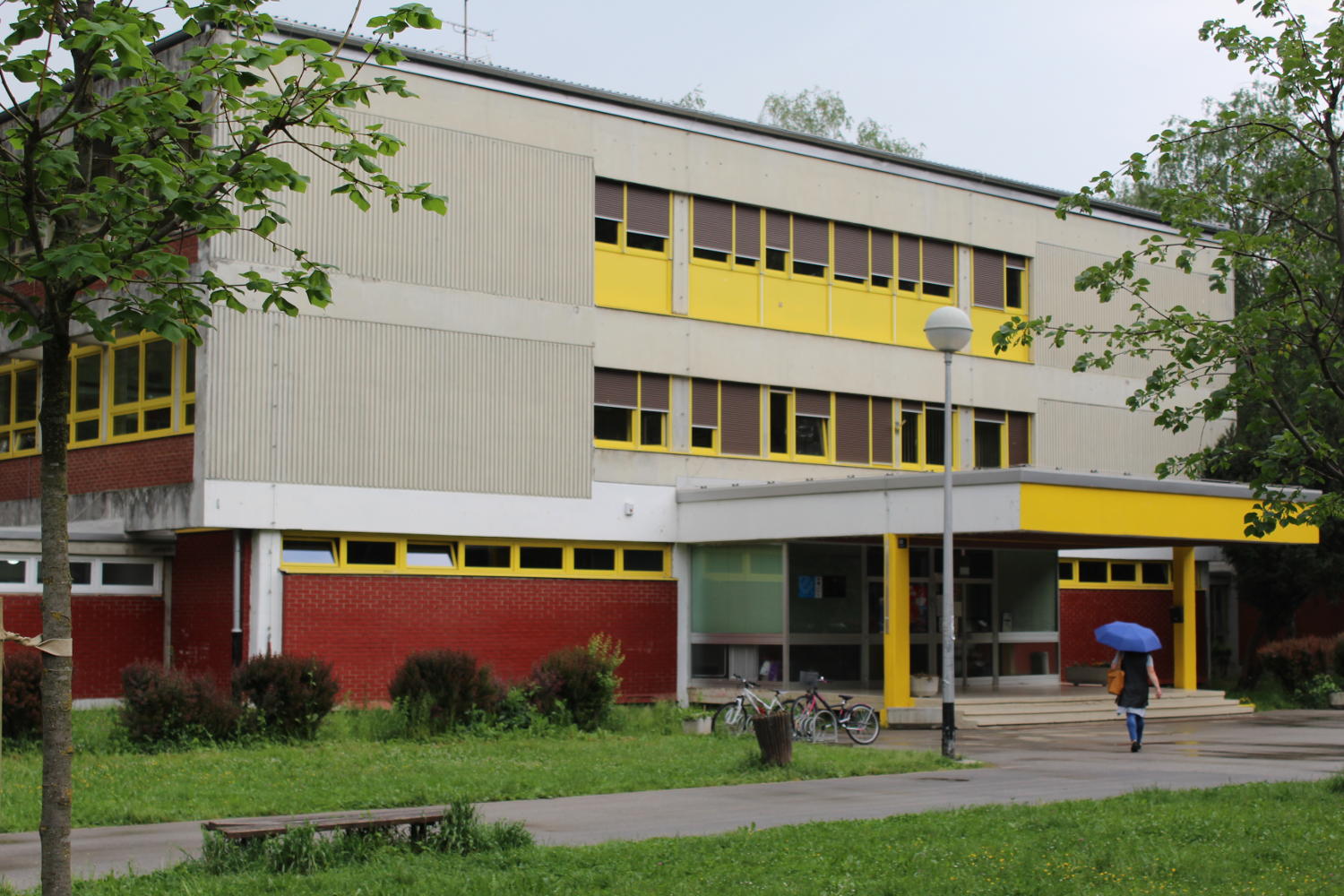 Ivo Andrić Elementary School in Sopot, Zagreb, where Dejan Nemcic teaches his inspired geography lessons © Ivo Andrić Elementary School
Ivo Andrić Elementary School in Sopot, Zagreb, where Dejan Nemcic teaches his inspired geography lessons © Ivo Andrić Elementary School
“I tell sixth-graders about the disappearance of the Amazon rainforest,” Dejan Nemcic detailed to 24sata as an example of his methods. “Then, my colleague Ana is waiting for us in a boat on the Amazon and we see everything as it really is. It’s the same with the favelas in Rio de Janeiro.” Using such collaborations and techniques he has allowed his students to travel the world from their classroom. He teaches everything that is included in the official curriculum but, with the blessing of the school administration, is free to teach it in his own inspiring way.
Around 150 members of the Croatian diaspora, located in the four corners of the earth, assist as part of the extended network of collaborators Dejan Nemcic has built over the last decade.
Educators from all over the world are included in the annual Global Teacher Awards. Teachers are nominated for inclusion by those who respect and admire their work. Dejan Nemcic was nominated by the EduBalkan platform.
For the latest travel info, bookmark our main travel info article, which is updated daily.
Read the Croatian Travel Update in your language - now available in 24 languages.


